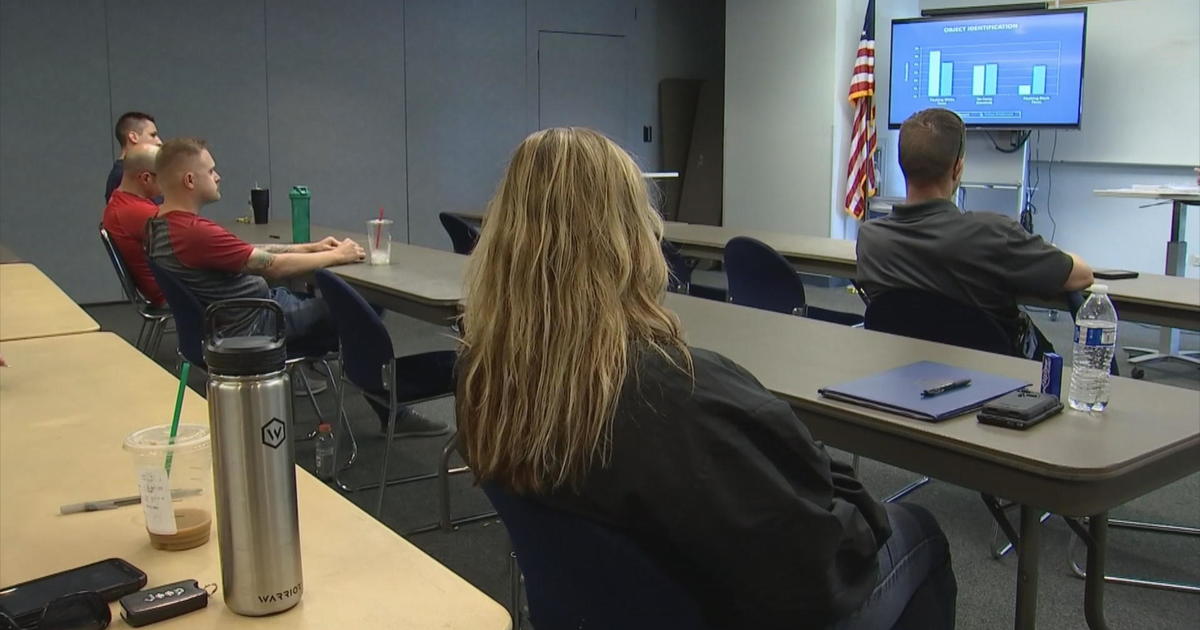
A CBS News investigation is revealing the changes police departments across America say they’re making to confront possible racial bias. This Friday marks five years since the death of Michael Brown, an unarmed black teen shot by a white officer who said Brown attacked him in Ferguson, Missouri.
Brown’s death and the grand jury decision not to indict the officer involved sparked months of protests. Outrage over similar incidents in other cities has led to changes in police training — but is it working?
CBS News reached out to more than 150 departments in big cities nationwide. At least 69% of the departments said they’ve added training that teaches officers how to manage unconscious biases we all have – including race.
More than half (57%) of those say they’ve added bias training since Ferguson. But when asked if it works, most say they don’t have a way to measure success – and some officers even said it’s made their jobs harder.
“The content was the absolute worst training I’ve ever had,” said a Mesa, Arizona, police officer, who is white. CBS News agreed to hide the faces and alter the voices of two white officers from the district so that they could speak freely.
The Mesa implicit bias training teaches officers how to recognize and minimize negative impacts that hidden biases can have on their jobs. The training includes phrases like “People are inclined to stereotype black individuals as more aggressive.”
“It’s reinforcing the minority of society that has that blanket opinion about Caucasian males,” one of the officers said. “One of the first videos introduced in that training was reaffirming that you’re born a victim if you’re a minority.”
“Alright, so what do you think the agenda is?” asked CBS News correspondent Jeff Pegues.
“Reinforcing that the police are racist, but specifically the white male police are racist,” the officer responded.
The two Mesa officers also said that some of the new training is just for show. “They start the video with saying, ‘We are not telling you to do this. We are here to present it,'” one officer said.
“At the beginning of the session they say, ‘Don’t do this, but you gotta watch it,'” Pegues said.
“Yeah, correct,” the officer responded.
“It kills morale…because to pay for this training we had to give up something else, right?” the other officer said. “So instead of doing more firearms training…okay, now we’ve taken funds from there…So for the officers and the morale, they look at it like…You don’t care about me and you don’t care about the citizens. You care about putting on this little show.”
The Mesa Police Department denies that trainers tell officers to ignore what they’re teaching.
To CBS News’ knowledge, these veteran officers have not been involved in the kinds of high-profile incidents that have divided the community and led to what they see as an over-correction in new training.
“Trying to change what we have done… that has worked overwhelmingly effectively… becomes an officer safety issue, causing officers to second guess themselves… which is a complete change to when we first started,” one of the officers said.
When asked about the number of high-profile incidents in the district – including Robert Johnson, who was beaten by police, Gabriel Ramirez, whose neck was squeezed by police after he was handcuffed, and Daniel Shaver, who begged officers for his life in a Mesa hotel room before he was fatally shot – one of the officers said that “There is nothing that those officers did that was outside of the training that they had received.”
“That Robert Johnson video…is that what you’re taught to do?” Pegues asked.
“We’re taught to handle the situation,” the officer responded.
“Was that handling the situation or was that excessive force?” Pegues asked.
“That was handling the situation,” he said.
The officers involved in the Ramirez and Johnson cases were not charged with crimes. Officer Phillip Brailsford was fired and charged with murdering Daniel Shaver, but was acquitted after a six-week trial.
Similar incidents across the country have prompted calls for police to change their approach. Of the departments who completed the survey, 75% said that they changed their training after controversial use of force incidents.
Of the departments who said they have implicit bias training, 90% said it is required for all officers. But training methods vary: Honolulu, Hawaii, said they have one half-hour session a year; Raleigh, North Carolina, said they do at least eight hours per year.
And despite what the two Mesa officers told CBS News, Chief Ramon Batista said earlier this year that the new training is working.
“I wanted our community to feel safe,” Batista said, adding “I think evidenced by the fact that in the last nine months, we’ve reduced use of force related events by over 30%, points to the fact that we’re making progress.”
But there is no universal measure of success. Other city departments we surveyed, like New York, said reducing physical altercations between officers and the community doesn’t necessarily mean implicit bias training is working.
Departments in Hawaii, Oregon, Georgia and Nebraska told CBS News that they track bias complaints against officers to determine success. But about 59% of departments who responded to follow up questions say they don’t have a way to know if implicit bias training is working at all.
Additional reporting by Martin Finn, Nicole Marshall, Jean Song, Jonathan Blakely, and Rachel Hellman.

